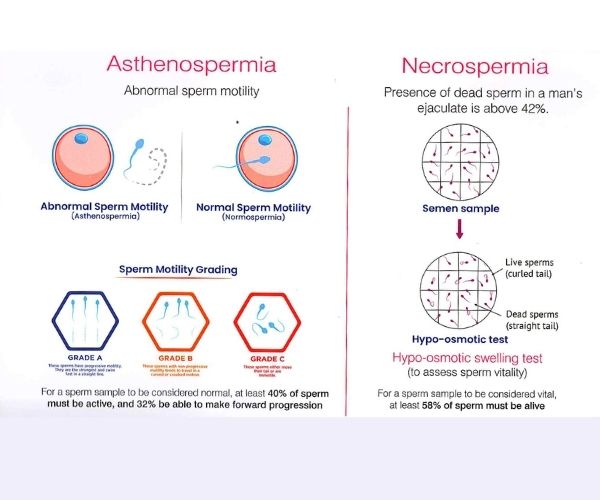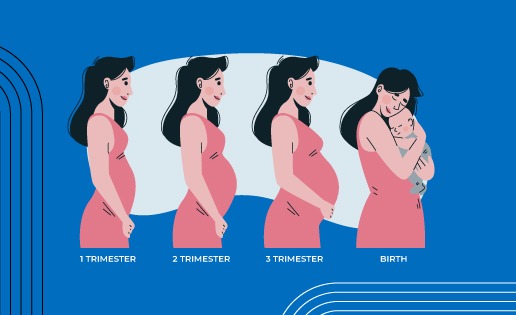Specialized center for Sperm Freezing Treatment
Sperm freezing and storage is the procedure whereby sperm cells are frozen to preserve them for future use.
THE LIFE PLUS HOSPITAL Care is COVID 19 Safe
1. Our Hospital premises are COVID safe
2. Regular sanitization of clinic & hospital premises
3. Immediate medical assistance through Online Consultation
Specialized center for Sperm Freezing Treatment
Sperm freezing and storage is the procedure whereby sperm cells are frozen to preserve them for future use.
THE LIFE PLUS HOSPITAL Care is COVID 19 Safe
- Our Hospital premises are COVID safe
- Regular sanitization of clinic & hospital premises
- Immediate medical assistance through Online Consultation

Sperm Freezing
Sperm freezing and storage is the procedure whereby sperm cells are frozen to preserve them for future use. Scientists freeze the sperm using special media then keep sperm in liquid nitrogen at minus 196C, and it can be stored for many years while maintaining a reasonable quality.
Freezing sperm at a glance
- Freezing sperm refers to the freezing and storage (called cryopreservation) of a man’s sperm.
- Stored sperm (i.e., “banked” as in a sperm bank) can be frozen indefinitely until needed for assisted reproductive procedures, such as in vitro fertilization (IVF), intrauterine insemination (IUI), or sperm donation.
- Typically, a man freezes his sperm if undergoing a medical treatment that may interfere with his fertility, including vasectomy and chemotherapy or radiation for cancer.
- A man may also choose to freeze his sperm if he is in a line of work that puts him in life-threatening danger or otherwise puts his fertility at risk.
Let's Schedule Your Appointment
Treatment

How are sperm collected and frozen?
If sperm are not present in the sample or if the man is unable to ejaculate, a surgical retrieval to remove sperm directly from the testicle is another option.
Next, the samples are separated into multiple vials to be frozen. Lab technicians will use specialized cryoprotectant (“anti-freeze”) agents to help preserve and protect sperm cells. The frozen sperm is then stored in the lab until needed. When the time comes, the sperm is thawed, washed, and tested for mobility prior to use in IUI or IVF.
Who should consider freezing sperm and why?
The primary benefits of freezing sperm are to allow a man to preserve his fertility by using his sperm at a later date or to give an infertile couple, an infertile individual or a lesbian couple a chance to conceive.
Common reasons to choose to freeze sperm:
- Advancing age.
- Deteriorating sperm quality or low quantity.
- Cancer or other medical reasons.
- Pre-vasectomy patients.
- Transgender patients.
- Career and lifestyle choices, such as those with high-risk occupations or who spend a lot of time away from their significant other.

Our Doctors
Why The Life Plus Hospital?
 The Life Plus Hospital is COVID-19 safe
The Life Plus Hospital is COVID-19 safe
Your safety is taken care of by thermal screening, social distancing, sanitized clinics, and hospital rooms, sterilized surgical equipment, and mandatory PPE kits during surgery.
 Medical Expertise With Technology
Medical Expertise With Technology
Our Doctors spend a lot of time with you to diagnose your condition. You are assisted in all pre-assisted Hospitalisation process. We offer advanced laser and laparoscopic surgical treatment. Our procedures are USFDA approved.
 Assisted Surgery Experience
Assisted Surgery Experience
A dedicated Medical Coordinator assists you throughout the surgery journey from insurance paperwork, to free commute from home to hospital & back and admission-discharge process at the hospital.
 Post Natal Care
Post Natal Care
We offer free follow-up consultations and instructions including dietary tips as well as exercises to every patient to ensure they have a smooth recovery to their daily routines.
The Life Plus Hospital in Numbers
IVF / ICSI
Surrogacy
IUI
Healthy IVF Babies
Sperm Freezing
Sperm freezing at a glance
- Sperm freezing preserves a man’s sperm cells, to maintain fertility if he is facing treatment that jeopardizes his future fertility
- Sperm freezing can also be used for sperm donation to infertile couples.
- This process benefits men at risk of reduced fertility from cancer or other health concerns.
- There is no known time limit on the viability of cryopreserved sperm.
- Sperm seem to be less sensitive to cryopreservation damage than other cell types because of the low water content.
- Some studies have reported that cellular damage can occur during the freezing and thawing of sperm, but there is no known risk to a baby conceived from donor sperm.
Sperm freezing, or cryopreservation, is the process of preserving sperm cells for later use, which was introduced in the 1950s. Cryopreserved specimens, when properly stored, can remain viable indefinitely. Pregnancies have been reported in cases where the sperm was stored for 20 years before thawing and insemination.
Benefits of sperm cryopreservation
Sperm freezing can preserve fertility for men who:
- Are about to have treatment for cancer, or undergo prostate or testicular surgery, all of which can harm sperm quality or production.
- Plan to have a vasectomy.
- Are in high-risk professions with exposure to chemicals, radiation or extreme heat that can cause sterility.
- Suffer ejaculatory dysfunction.
Sperm freezing is also used for men who want to make a sperm donation to a sperm bank.
Sperm freezing & thawing process
Semen collection
Sperm donors will first have blood tests, primarily to check for HIV, hepatitis B, and hepatitis C.
The man may be given a choice of producing a specimen at home or at the lab site. Men who opt to give a specimen at the lab will be given a private room and visual material. Those collecting at home will be given exact instructions for semen collection.
For best results, it is recommended that a man does not have an ejaculation for two to five days prior to providing a sample. If he ejaculated too recently, the count may be low. If his last ejaculation was too long ago, many of the sperm may be immotile.
The semen from a single ejaculation may contain 40 million to 600 million sperm, depending on the volume of the ejaculate and the length of time since the last ejaculation. Patients may choose to bank sperm from one ejaculation (one collection can yield one to six vials of sperm), but providing additional samples is recommended.
Semen samples are collected in a sterile container, then lab technicians analyze the samples for volume, viscosity and pH levels. The sperm are also microscopically evaluated to determine motility, sperm count, morphology and other important factors.
Many labs require an initial test freeze of the sperm before actually conducting the banking.
Freezing process
Cryoprotectant is added to the semen to control sperm damage caused by freezing. Cryoprotectants are low-molecular-weight and highly permeable chemicals used to protect sperm from freeze damage by ice crystallization.
There are two cryopreservation techniques:
- Slow freezing, which involves progressive sperm cooling over a period of two to four hours in two or three steps. The specimen is then plunged into liquid nitrogen at minus 196 degrees Celsius.
- Rapid freezing requires direct contact between sterile straws holding the samples and nitrogen vapors for eight to 10 minutes, followed by immersion in liquid nitrogen at minus 196 degrees Celsius.
Thawing process
The thawing of sperm is an equally important step as freezing: the cell must be allowed to recover its normal biological activities while avoiding abrupt thermal changes. Generally, the cryopreservation protocols use a thawing temperature of 37 degrees Celsius. Even if higher thawing temperatures allow for more rapid heating, they are not used because of the risks of cell damage.
Once the sperm cells are thawed, they are separated from the cryopreservation medium by being washed in culture medium and centrifuging.
Risks of sperm cryopreservation
Compared with other cell types, sperm seem to be less sensitive to cryopreservation damage because of the high fluidity of the membrane and the low water content (which is only about 50 percent).
Despite this, cryopreservation may lead to unwanted changes of sperm structure and function. Studies have reported that several damaging processes could occur during the freezing and thawing of human sperm, such as thermal shock with the formation of intracellular and extracellular ice crystals, cellular dehydration, and osmotic shock, affecting the sperm’s ability to fertilize an egg for a viable pregnancy. However, these kinds of damage seem only to affect a sperm’s ability to cause a pregnancy. Pregnancies achieved by donor sperm are not known to have a higher rate of abnormalities.
Get in Touch
Tell us about your problems and we’ll figure out the best treatment option for you.
Life Plus hospital
Women and Child Care Hospital in Indiranagar | LifePlus Hospital
At Life plus hospital, we offer a comprehensive range of women’s health services. The Department is managed by highly experienced lady gynecological doctors who offer specialized attention and compassionate care for women
Let's Schedule Your Appointment
IUI & IVF Success Story
https://youtu.be/3sBjEYtzV2Y
Sperm Freezing Faq's
Unfortunately, life is unpredictable. There are many situations that could interfere with your future fertility. These may include:
- Chemotherapy or radiation therapy.
- Certain types of pelvic or testicular surgery.
- Vasectomy.
- High-risk occupations or sports.
- Diabetes, which may cause erectile difficulty.
- Being away from home on day of assisted reproductive treatment.
- Anxiety on the day of treatment (back up storage)
Please ask your GP or specialist for a referral form to see one of our specialists at City Fertility.
It is preferable if, before your first appointment, blood tests for hepatitis B, hepatitis C, and HIV are arranged. We routinely screen for these infections because they may be transmitted through the semen, and to minimize the risk of contamination during storage.
Once you receive your blood test results, please contact us to arrange, to book a time, to produce the sample at our clinic. At this, you will need to sign a consent form for the freezing and storage of sperm, which consents for up to 10 years at a time.
Everyone’s situation is different. Most men freeze between two and five samples. Some choose to freeze many more. Often, the time interval before surgery, chemotherapy or radiation therapy will be the deciding factor.
We recommend abstaining from intercourse and ejaculation for at least two days but not longer than five days before the first sample, and for about two days between the samples.
Research has shown no difference in the rates of abnormalities or birth defects among children conceived with fresh versus frozen sperm. However, there are some theoretical concerns that chemotherapy drugs may have unknown effects on the sperm or the offspring. If possible, it is best to freeze the specimens before chemotherapy begins.


















